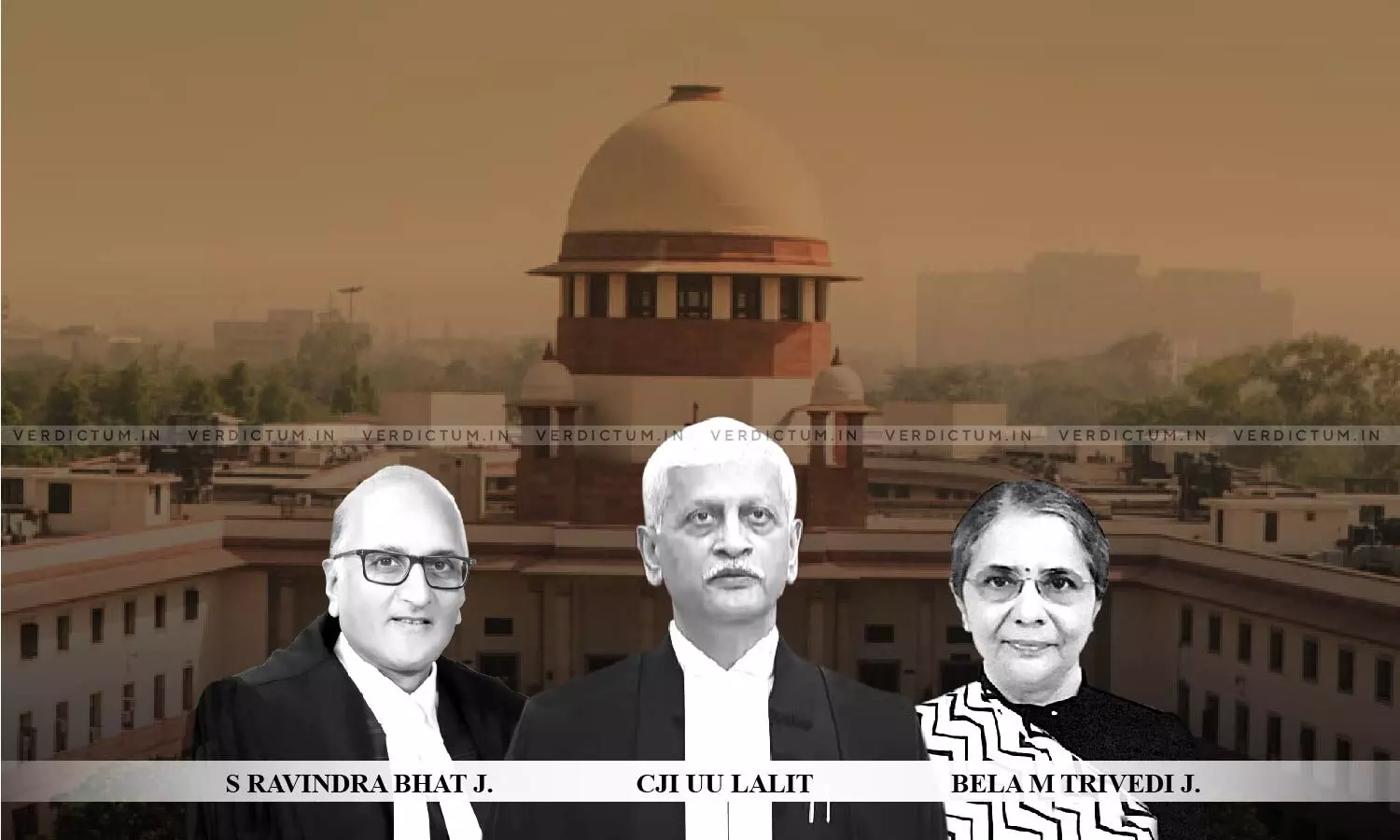
Odisha Resettlement & Rehabilitation Policy- Two Male Members Eligible For Employment Benefit, Unmarried Daughter Is Separate Entity- SC
 |
|A Supreme Court Bench of Chief Justice Uday Umesh Lalit, Justice S Ravindra Bhat and Justice Bela M Trivedi has passed a detailed order in the interest of providing relief to persons displaced from their land back in 1988.
The Apex Court held that the Odisha Resettlement and Rehabilitation Policy, 2006 (R&R Policy, 2006) would be applicable for the purpose of employment benefits, as it was more beneficial as opposed to the subsequent policy passed in 2013, and therefore observed that "A family unit would comprise of head of family or father, a major son, and an unmarried daughter having regard to the definition and the note appended thereof. In case, for some reason, the major son cannot be given employment, and there exists a major grandson, he would then be eligible for consideration. In other words, two members (father and son or father and grandson) would be eligible for employment and not three, in addition to the unmarried daughter who is also to be treated as separate unit."
Senior Counsel Atmaran Nadkarni appeared for the Appellant, while Counsel Prashant Bhushan appeared for the landowners.
In this case, the High Court had passed an order directing the Central Government and Mahanadi Coalfields Ltd. (MCL) to immediately proceed under provisions of the Coal Bearing Areas (Acquisition and Development) Act, 1957 (CBA Act) to determine and disburse compensation payable to landowners as expeditiously as possible, preferably within six months. Aggrieved by the order, MCL approached the Supreme Court.
Addressing the issue of determination of the cut-off date, the Supreme Court agreed that the compensation amounts should be determined having regard to one single cut-off date, which in this case was September 2010. In light of the same, the Court said that "reopening the issue would lead to considerable uncertainty, because settled cases would invariably have to be re-examined and computations made afresh. For these foregoing reasons, the submission with respect to application of the dates when the surveys were notified as the basis for computation of compensation in different villages, is rejected as unfeasible".
Analysing whether the Odisha Resettlement and Rehabilitation Policy, 2013 (R&R Act, 2013) applied to the case, the Court held that the requirement of compensation determination under the CBA Act had ceased by virtue of Section 105(3), and hence, the statutory regime under the CBA Act was superseded and substituted with the provisions of the First Schedule to the R&R Act, 2013. In that vein, the Court observed that "Accordingly, the compensation based upon the market value for the four villages i.e., Tumulia, Jhupuranga, Ratansara, and Kirpsara have to be re-determined in accordance with the provisions of the First Schedule to the R&R Act, 2013. Since the extent to land involved, identification of land owners, and the basic market value along with solatium and interest payments, have been determined, the only additional exercise which the Commission has to carry out is the differential payable after the re-determination in respect of all the elements i.e., the market value, solatium, and further interest."
The Court further held that the R&R Policy, 2006 would be applicable for the purpose of employment benefits, as it was more beneficial as opposed to the subsequent Policy of 2013. In light of the same, it was held that "A displaced family has to be determined in the light of the definition, which includes the individual, and one major son, and an unmarried daughter. It is when, for some reason, the son cannot be offered or given employment, then one major grandson would be eligible for consideration." As it had been submitted that MCL was willing to provide a one-time compensation of Rs. 16 Lakhs as an alternative to the 2006 policy, the Court directed that the Collector must ensure that the better option is provided.
Analysing the land owners' entitlement to housing plots, the Court declared and directed that the State and MCL are under an obligation to ensure that the land acquired by it in those areas which are to be developed, have to be developed. In light of the same, the Apex Court developed and ordered the enforcement of procedures through which nodal officers and the Collector shall ensure speedy and smooth rehabilitation and resettlement.
Further, the Court also directed that the State must ensure that the facilities and amenities set out in the Third Schedule to the R&R Act, 2013 are provided to the displaced families in the resettlement areas where they are located and where they ultimately move to, and that members of the families who are displaced and whose lists are maintained by the Commission as well as MCL shall be issued with fresh SC/ST certificates.
The Apex Court exercised its special powers under Article 142 of the Constitution to pass further directions regarding the roles and responsibilities of various officers and the time period within which the various processes must be completed. No orders were passed as to costs.
Cause Title: Mahanadi Coal Fields Ltd. & Anr. vs Mathias Oram & Anr.
Click here to read/download the Judgment